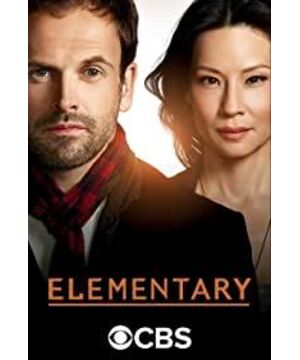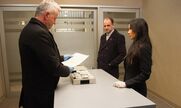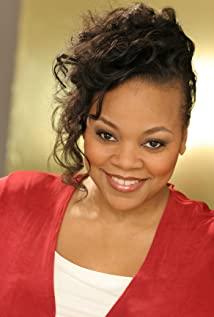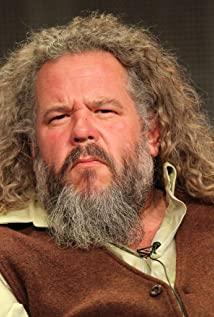Link: http://blog.sina.com.cn/u/1781278563
The previous article made a sort out of the first season of Elementary from the perspective of adaptation and text. This article is about The show itself, and its place in the crime drama genre it's in. Spoiler alert as usual.
As a crime drama, in addition to "adaptation deviating from the original", another major question that Elementary often receives is "criminal cases are too mediocre" - excluding the extreme pursuit of cool, handsome and tyrannical (there is really no such thing in this Elementary, I usually rely on masturbation POI to satisfy), what kind of crime drama is attracted to must first be a matter of personal taste, I will list a few models of crime dramas in my mind for reference, if the wavelength is still in one dimension, you have the potential to be I succeeded in selling and kidnapping. If you are not in the same dimension at all, it would be good to understand the logic of alien planets. Taste is something that cannot be forced. Everyone has unique thunder and cuteness. It is very interesting and interesting, but trying new things without preconceived prejudice should be one of the joys of life, and it is the joy that only you can deprive yourself of. . The following is a frame of reference: The crime drama that I admire the most is the BBC's "Miss Marple", the "CSI" series and "Criminal Minds" have made outstanding contributions to the genre, and the highest objective overall score is the audience. Perennial overlord "NCIS". The specific reasons will be explained below.
Secondly, knowing that the taste issue is too complicated and controversial, I still want to try to write it because in addition to the work itself, personal experience, personality and circle, some pertinent comments are still related to my taste in appreciating various literary and artistic works. Lots of positive effects. For example, if I hadn't studied contemporary art history, the fun of going to an art gallery would have diminished a lot; if I hadn't read Bakhtin, I would still like "The Giants" and "The Master and Margarita", but I might not be able to speak for myself. Why do you like it, and there is not enough guidance to find more similar good works. Rather than pinch each other and sing praises, I would like to try to see if I can objectively clarify the two questions of "why do I think it's good" and "how to appreciate it so that I can see the good" - if you don't find it enlightening, it must be I can't write well enough.
Finally, I will expose my low professional status of doing PPT all the year round. Before starting the lecture, I will outline an outline. The analysis problem must have a framework. The next analysis will be carried out from the perspectives of "crime", "detection" and "suspense". Crime in Elementary, and other crime dramas by the way.
Crime
When I saw the famous quote of Jeremy Bentham, the father of modern criminology, in Elementary, "Crime is a product of free will", I had to clapp my thighs. Although crime is the dark side of human society, it is nothing more than a product of human nature, and to me, a good crime drama must be able to do this when designing crime.
Take the most serious murder in the crime case, the crime of passion is the product of the combination of motive and mental state. Premeditated crimes either come from abnormal personality and mental state (serial killers belong to this category), or have a motive, which is generally not a motive. Beyond interests and emotions. In the field of crime dramas and inferential novels, it is not difficult to find that there are more interest factors in the motives of European and American homicides, and often include national security conspiracy theories and salvation complexes. There are many ethical motives in Japanese homicides. wonder. From a realistic point of view, the motive of killing people to prove that you are smart and invincible is almost non-existent. The image of the heroized BOSS devil is not only wrong, but also causes the entire story to be deformed, which is difficult to pull back. Normal reason. Although many people will be excited when watching crime dramas and feel that the villain is very attractive, but the most instinctive psychological reaction of human beings determines that taking someone's life is definitely not an easy thing, nor is it a behavior that can be driven by ordinary motives.
Elementary gave Moriarty a major benefit motive and the identity of accepting criminal commissions is what I appreciate the most, except for the emotional factor involved in the showdown with Sherlock Holmes, she will not kill to show her superiority, although she will. There are extremely high requirements for the quality of the bureau. What's more ingenious is that the play arranges for her to recruit some people who have a morbid interest in killing to complete her task, and does not change their MO (Modus operandi) - it is worth noting here that, in reality, Most killers driven by psychological and personality issues are seen as unintelligent and crude because they either have a paranoid preference for being seen and become a weakness, or are mentally unstable. Elementary's point of view was clearly expressed by Sherlock Holmes in the Super Bowl leading episode - "Don't mythical serial killers, most of them are stupider than the Queen's ruling celebration", and the show also echoes the plot description. at this point. I don’t know if you have noticed that those serial killers with distinct MOs, such as Moran who has a sadistic tendency in the play, such as the “accidental murder” engineer, are at the bottom of Moriarty’s cobwebs, are they not? The killer who knew Moriarty's true identity and who was killed by Moriarty himself was a more "professional" "high-level" spider. In a word, professionals are more reliable than Fukai Ice, and this also applies to the killing world.
This design crime standard has also been applied to other Elementary cases, so most of the criminals we see are just ordinary people who have been distorted by special experiences and hidden motives. The concave and chic "criminal genius" and the magic trick to open the golden finger. The episodes that impressed me the most include a four-person treasury robbery gang involving a housewife, the founder of a public relations firm who was blackmailed by early sex tapes to kill a colleague, and an investment bank who helped his boss clear the way for a pay raise and equity appreciation. Secretary, an intellectual who liquidated a teammate of a mock terrorist attack plan in order to protect New York City - all the motives are actually very simple after being stripped of the layers of disguise, the darkness under the sun is even more terrifying because it is real. The reason why I admire Agatha Christie and Miss Marple, adapted from her work, is precisely because Christie is very observant of human nature, even if the setting is often just a quiet and peaceful suburban town with a short parent, motivated by nothing more than family property and ethics, but can Create the most classic detective image and crime works.
If you look at crime dramas by this standard, although Dexter is well-made and the story is well-written, I still can't see it as a "crime drama", "thriller" and "ethics" are more like its genres. The setting of the new drama The Following, which gathers serial killers to complete the great mission, is even more overhead, and it is dramatic for the sake of drama. As for the genre of solving crimes with surreal means, it will not be discussed in this group.
Detection
Speaking of detection, I would like to first talk about what "deductive method" is. In fact, Elementary has already said this question through the mouth of Sherlock Holmes's old drug dealer friend Reiss: the first part is to know things, and the second part, like artistic creation, is to establish the connection between these things. On the point of "knowing things", more emphasis is placed on observation, which is also Sherlock Holmes's signature skill, but what is easily overlooked is the homework behind. I appreciate the emphasis on practice and learning several times in Elementary, such as Sherlock Holmes's watching N TV Dafa, reading all kinds of bizarre papers, all kinds of reading and practice assignments for Watson, etc. "Success is one percent of genius and ninety-nine percent of perspiration", "Learning without thinking leads to confusion, and thinking without learning leads to slack". These two sentences are applicable to the "deductive method". Without a strong reserve of knowledge and common sense, it is impossible to complete the "deductive method", even if there is an infinite knowledge base on the Internet, because whether you use Google or Bing, you must first know what the search keywords are. Inspiration to make connections between known things to find the truth is a gift, and indeed like art, one can't help but feel that maybe a little extra "stimulus" is needed - Reese thinks it should be drugs, but in fact the drama Watson in China has taken on the responsibility of “stimulating” a healthier and more environmentally friendly way. "You make me better" is what the screenwriter said, "Some people are not geniuses, but have the ability to inspire geniuses" is what the original book said.
The next thing to say is what is the place of the "deductive method" in the modern context. In the era of the original Sherlock Holmes, due to the limitations of detection technology, the deductive method was more likely to appear magical. However, in today's films such as CSI and Criminal Minds, all kinds of crime-solving methods have been shown to the audience. What can the deductive method do? Woolen cloth? This point is also explained in the play. For example, as a means of finding suspects, Holmes himself said that his deduction method and psychological profiling are completely different. The assessment and summary of the case-facing points and the psychological profiling method are difficult to apply in premeditated independent cases. Similarly, deductive methods and modern evidence collection and analysis methods are compatible and complementary. DNA and physical evidence identification provide court testimony, while deductive methods provide guidance on "where to find these evidences." There may be no deductive method, and evidence collection and analysis can finally reach the same conclusion, but the deductive method can make the conclusion earlier, buy more time for the whole detection, and thus increase the chance of solving the case.
Last but not least is how crime dramas shape the existing justice system. My personal opinion is that if the deductive method supersedes the already-existing and well-established detection methods mentioned earlier, and does the feat of punching the CSI and kicking the FBI, it will definitely not be more sophisticated, but it will make people feel that the screenwriter lacks common sense. , open the protagonist's halo. As Sheriff Gregson said, "The city and the entire police department existed before you came." Elementary was mindful of the sense of proportion in this issue, and did not make Holmes the one who saved the stupid cops and the sin city from disaster. Instead of superheroes, they found a space where the deduction method can be used, and also allowed the series to find its own position among many crime dramas-in addition to solving difficulties and buying time, Sherlock Holmes and his deduction method also exist. There are "loopholes" found in the judicial process. For example, when a person disappears for less than 48 hours, they can intervene in the investigation, and they can find the kidnapped person who cannot alert the official. They can have more means to obtain evidence than the "editing" police. You don't have to take the lawyers and the internal affairs department of the police station too much. You can take over some suspicious cases that will not be accepted by the government under the normal logic of handling cases. In the original, detectives and doctors received a lot of investigation commissions, which is less reflected in this season. I hope that in the second season, in addition to taking cases in the NYPD and "touching" murder cases like Conan There are more interesting delegates appearing.
Suspense
If the crime is filmed and solved along the natural timeline from the beginning of the crime planning and implementation, then there will be no suspense in all crime dramas. On television, the suspense factor of a crime drama depends on how the suspense is presented.
Crime dramas are probably the most challenging genre dramas for writers and directors, because they have to decide when to present evidence and introduce suspects based on the type of crime and detection methods analyzed above. The timing is so that they can tell the story clearly, without being immediately seen through the trump card by the audience. Both the CSI series and "Criminal Minds" use methods that show the process of detection and the process of committing crimes in sections. For example, the most common practice in "Criminal Minds" is: there are always scenes of suspects committing crimes, but as the process of solving crimes progresses from Faceless to revealing, finally the case-solver and the perpetrator finally face each other, and the dramatic conflict reaches its peak. Films such as "Miss Marple" use the method of suspects hiding among ordinary characters and appearing together. The perspective is more like a bystander, not a detective. We don't know what the detective is thinking. Some key reasoning and evidence will be revealed at the end. . Elementary is basically the perspective of Sherlock Holmes and Watson. Every person and every piece of evidence encountered is encountered in real time as a case solver. Every idea from the beginning of reasoning to revealing the answer will be presented in the process. There are only two people. When "playing the game", the camera will not follow, and the whole story will not be told until the suspect is arrested. The flashback method only appeared in the episode when Holmes was tied. The flashback-style suspense design of photos at the beginning of each episode of NCIS is unique, and the timeline is often adjusted, so the suspense is often constructed relatively large. The background stories of the characters in this play are unusually rich, and the investigation and evidence parts are very solid (there are strong men in the network and laboratory fields), and the investigation team is originally from the military background, and often has very grand anti-terrorism and national Safety and other topics, so it is reasonable to be able to watch Changhong. I also give the highest overall score excluding personal preferences, but in the genre of crime drama, it is also a "survey" that is closer to the "suspense" and "thriller" branches. " category episodes, a little further from the "reasoning" category.
When watching Elementary, I'm afraid you'll be disappointed if you expect a "powerful" plot outside of its narrative style. For example, we always know that the real murderer has appeared as the protagonist or supporting role. If we don't care about the reasoning process of finding the real murderer and only guess the real murderer, we will always have a chance to guess. For example, all the details and evidence that the detective and the doctor know have been shown. It is impossible for the big detective to throw out a key piece of evidence that has never appeared before and only he knows. For example, the stamina of detectives and doctors are basically the same as Uncle Li, who wants to watch action scenes and go out and turn left to the head of the house. Elementary's case presentation is guided by the details, allowing us to follow Sherlock Holmes, even when misguided and lacking in evidence. This is really not a drama with ups and downs or a sense of superiority in IQ, and there is almost no new story under the sun in the field of crime drama. For me, I prefer this rational and delicate style. Reality" is more important than "legendary".
All in all, the success of Elementary as a crime drama is that it is "just a little higher than reality" - Sherlock Holmes is like an ordinary person, and the perpetrators are also ordinary people. Get off the detective. But if you really put real ordinary people into the same story, you probably won't be able to design a more sophisticated case, and you won't be able to make a Sherlock Holmes-style reasoning. It is said that art is higher than life, but how much higher, everyone's standards are different. The precise grasp of this "a little" size is the reason why I like this show, and probably the reason why many people don't like it.
Finally, I have carefully read the comments and retweets of the last article by my friends. I am sorry that I can't respond to them one by one, but it is really an accident and a pleasure to learn that there are so many Elementary friends. I hope this drama will continue. We won't be disappointed, and we can keep the standard for a few more seasons!
View more about Elementary reviews











